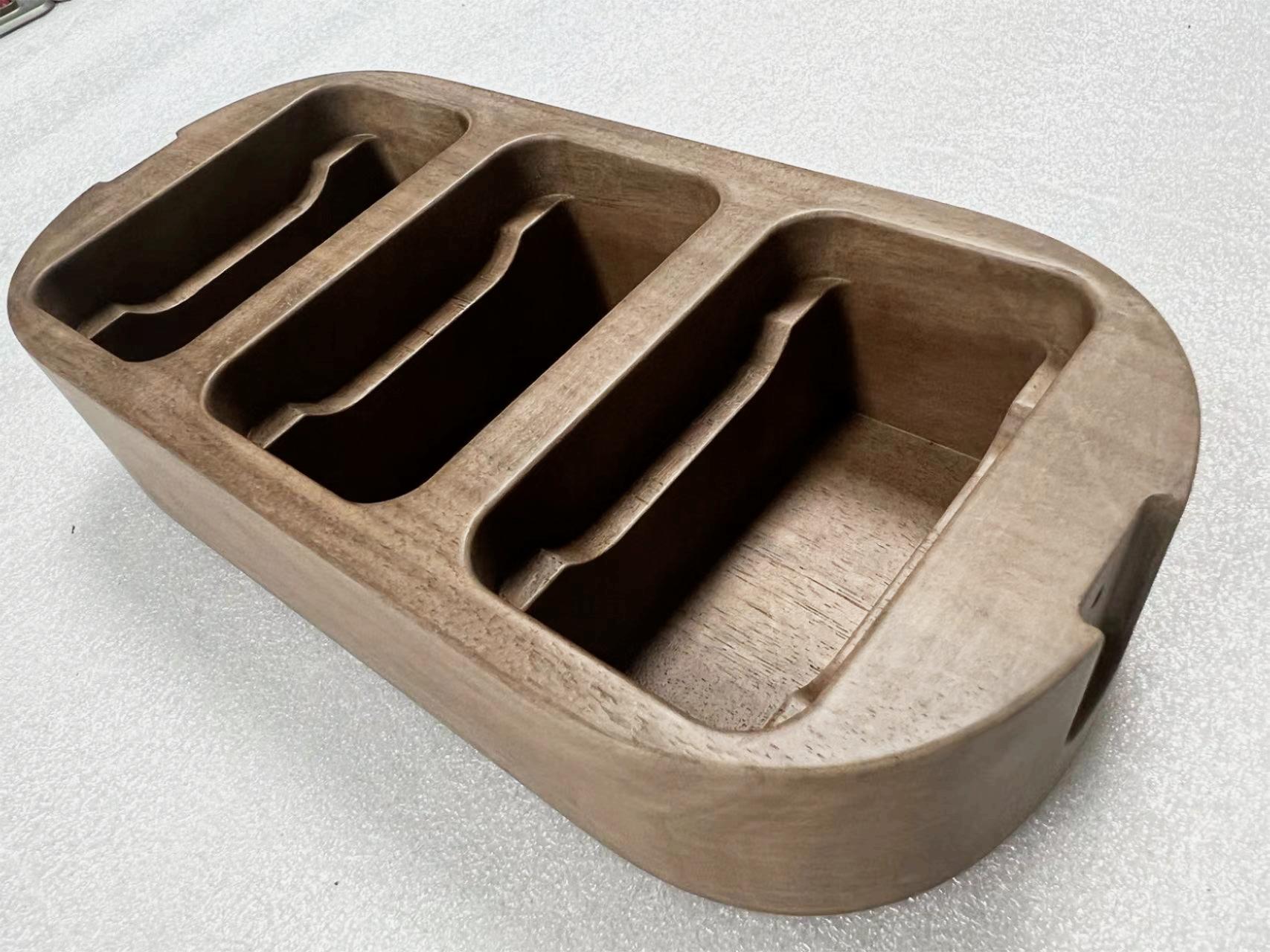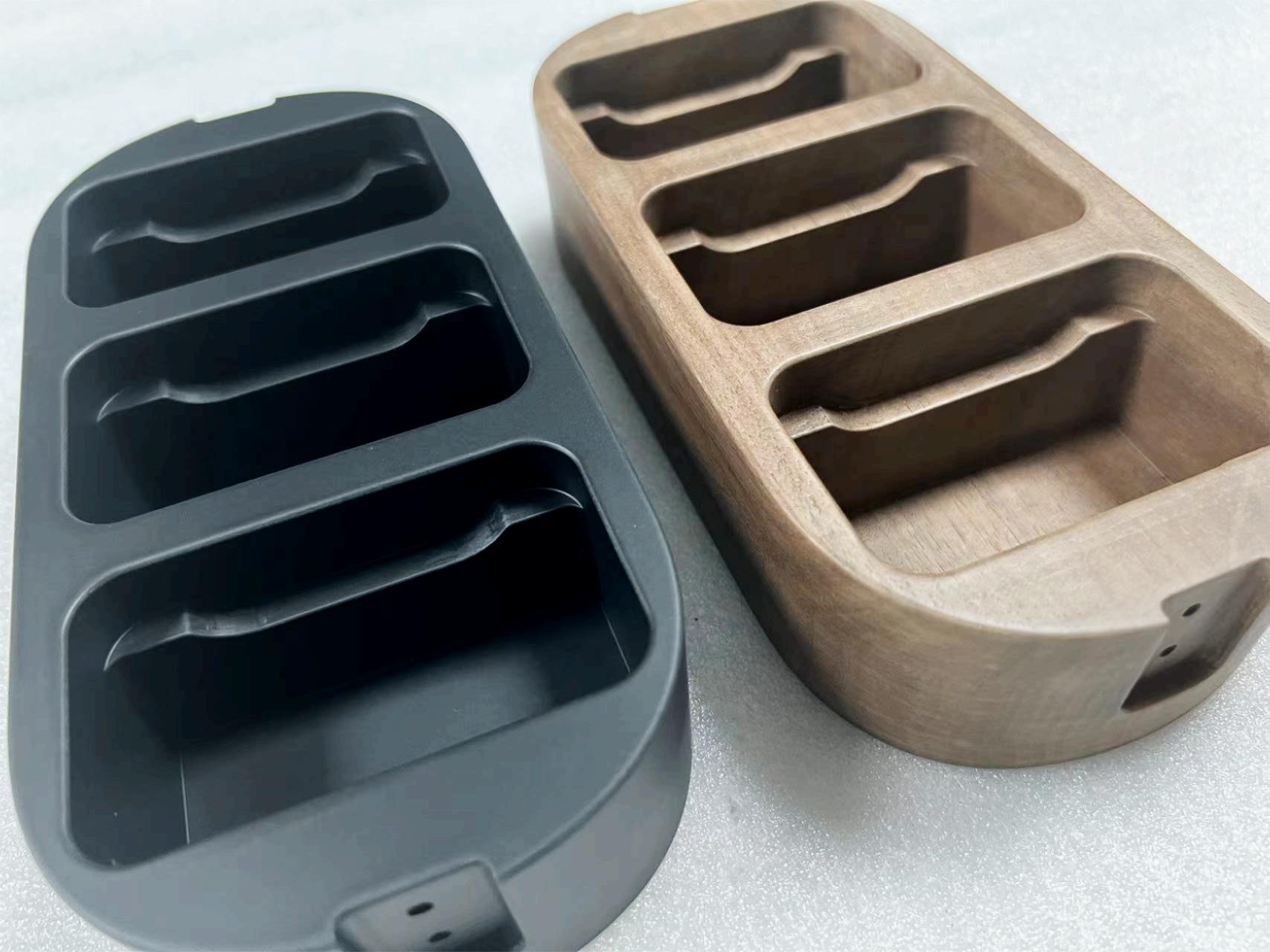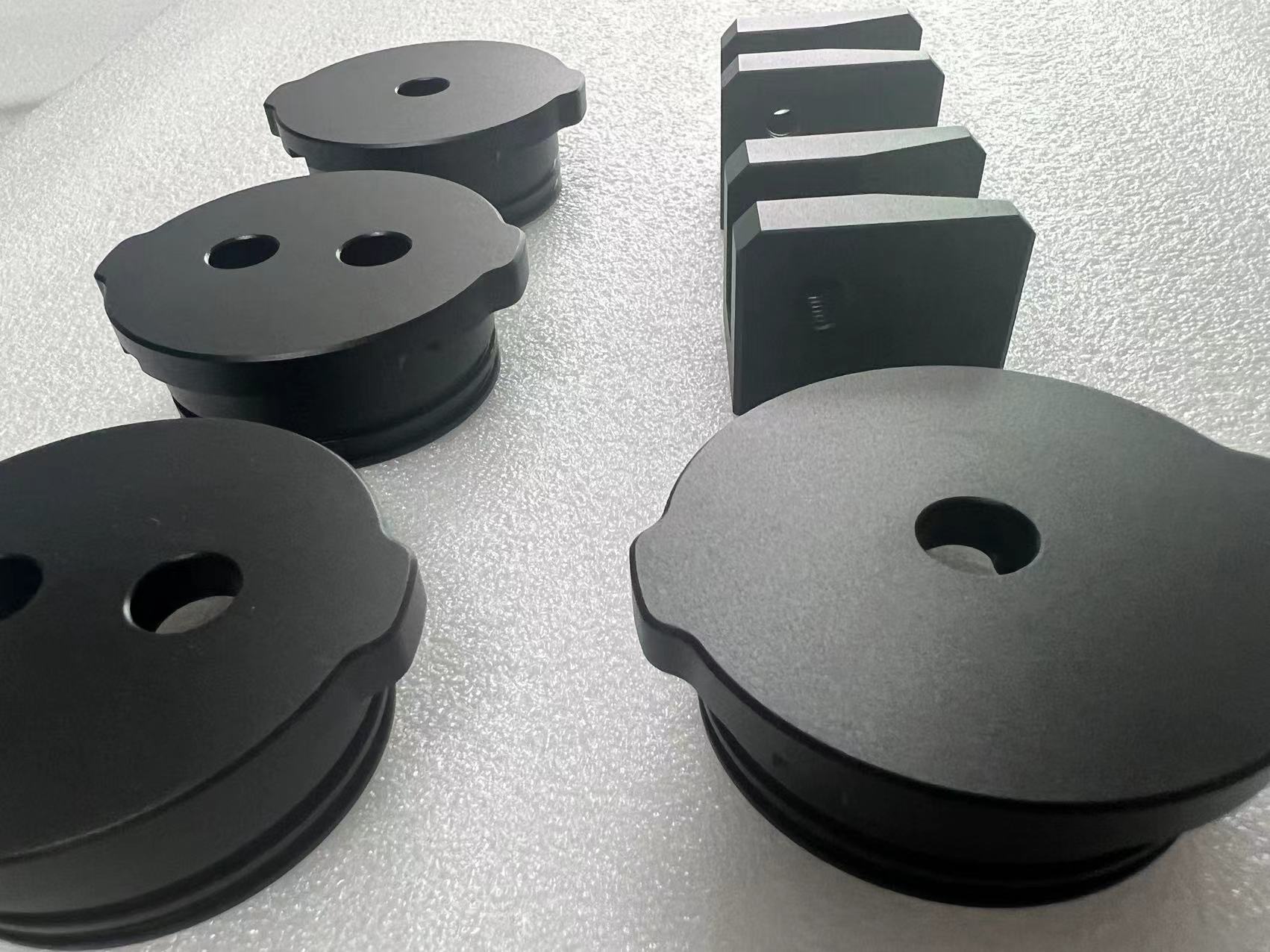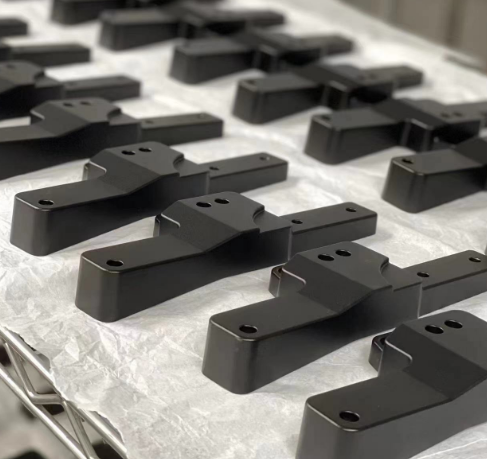CNC Wood Service: Woodworking in China's Factory
CNC refers to machining using computer-controlled tools.
In this era of advanced technology and convenience, CNC machining offers greater advantages and efficiency compared to traditional manual methods.
It can produce parts with complex shapes that manual methods cannot achieve.
CNC machining technology has now been widely adopted, with most machine shops possessing CNC capabilities.
In addition to traditional metal part manufacturing, CNC machining technology is also widely used in the field of woodworking.
As a prototype and CNC machining manufacturer, we have considerable experience and expertise in this field.

CNC machining technology enhances the precision of woodworking.
Traditional hand carving is often limited by the craftsman's skill and cannot achieve very precise dimensions and shapes.
CNC machining, on the other hand, can achieve precision down to the millimeter level, making it possible to manufacture high-precision wooden artifacts.
CNC technology supports the machining of various types of wood, including hardwoods, softwoods, and more, providing a rich selection of materials for woodworking innovation.
Applications of CNC Woodworking:
Furniture Industry:
CNC technology is widely used in the furniture industry.
It can be used to manufacture various furniture components such as door panels, drawers, table legs, and can also carve intricate patterns, adding artistic value to furniture.
Architectural Decoration:
In the field of architecture, CNC machining technology can be used to produce wooden ceilings, wall decorations, wooden blinds, etc.
These products have complex designs that are difficult to achieve using traditional methods.
Woodcrafts:
CNC technology offers new possibilities for the production of woodcrafts.
Whether it's intricate handicrafts or mass-produced items, CNC machining can meet the demand.
It allows designers to unleash their creativity and turn complex and intricate designs into reality.
Model Making:
Hobbyists or professionals often need to create fine models.
CNC machining technology can produce high-precision model parts on wood, meeting various demands for fine model making.

Challenges and Prospects of CNC Woodworking:
Although CNC woodworking offers many advantages, it also faces challenges in practical applications.
For example, the unevenness and deformability of wood materials require higher precision and stability in CNC machining.
Additionally, how to integrate CNC technology with traditional woodworking techniques while preserving the natural texture and artistic value of wood is a question that the industry needs to explore.
Therefore, such projects will require experienced manufacturers to complete.
However, with the continuous progress and innovation of technology, we have reason to believe that the prospects of CNC woodworking are promising.
Future CNC technology will become more intelligent and automated, better adapting to the characteristics of wood materials and producing more exquisite and artistic wood products.
Moreover, by integrating advanced technologies such as 3D printing, CNC woodworking will open up a whole new creative space, bringing revolutionary changes to the traditional woodworking industry.
We look forward to more innovation and breakthroughs, allowing this ancient material of wood to shine even brighter under the illumination of modern technology.
Contact us for more information.
 The Exquisite Craftsmanship of
The Exquisite Craftsmanship of
 Our 3D Printing: A Brief Intr
Our 3D Printing: A Brief Intr
 Ruiyi's Control of Mold Qualit
Ruiyi's Control of Mold Qualit
 Reliable Mold Manufacturer | E
Reliable Mold Manufacturer | E
